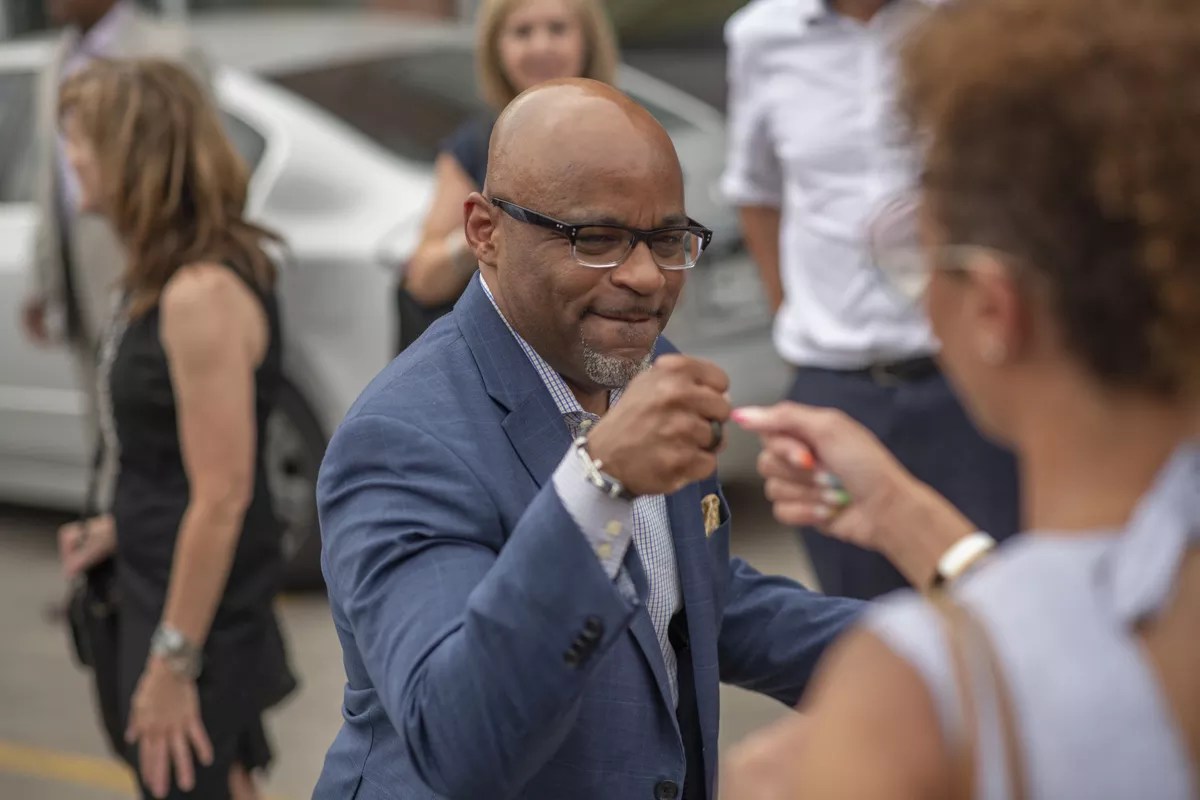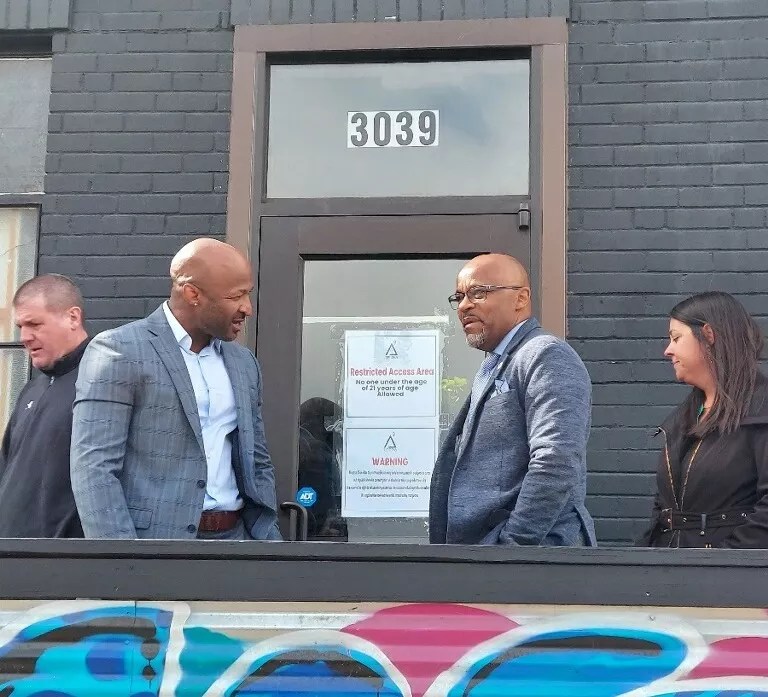
Evan Semón

Audio By Carbonatix
Mayor Michael Hancock is proud of the legal marijuana program that Denver has created, even going so far as to call it the “gold standard” of pot policy.
The Marijuana Policy Office within the Denver Department of Excise & Licenses publishes an annual progress report every summer on the local pot industry. But the 2023 edition is more of a final report card for Hancock, who’s termed out after twelve years in office.
Hancock’s administration oversaw the implementation of recreational marijuana rules in Denver, the first major city in the country to allow retail pot sales, on January 1, 2014. Although he originally opposed Amendment 64, the voter-approved measure that legalized retail cannabis in Colorado, Hancock later reversed course. And in a letter attached to Excise & Licenses’ annual report released July 5, the outgoing mayor reflects on the city’s “first-of-its-kind” process.
“Nearly 10 years later, Denver is the gold standard for cannabis regulation and a worldwide leader. Denver has brought unlicensed operators into compliance and created a collaborative model of marijuana management. We developed ordinances to regulate, license and tax medical and retail marijuana. Denver has embraced a management model that is quick, responsive, and nimble in collaboration with a fast developing and innovative industry,” Hancock says in that letter.
Hancock highlights his administration’s efforts to curb youth use of marijuana over the past decade, as well as initiatives to fund affordable housing, local investment funds and socially equitable ownership opportunities in the marijuana industry. In 2023 alone, local marijuana tax revenue will fund $8 million in homelessness services, over $8.7 million in affordable-housing assistance and nearly $4.4 million in small-business investments, with over $10 million allocated for youth intervention, legal marijuana enforcement, regulator efforts and public safety campaigns.
“Thanks to the hard work of the team to craft and enforce strong regulations, Denver serves as a model to other cities and states as they implement marijuana regulatory systems. When Amendment 64 to legalize marijuana was put to Colorado voters, many feared that youth marijuana use and crime would skyrocket. To date, none of the extreme negative predictions about legalization have come to pass in the Mile High City,” Hancock continues.
While there is plenty to tout of in the city’s report, including a 74 percent drop in black-market seizures since retail sales began, new information compiled by Excise & Licenses also shows a plateauing industry.
According to the report, gross dispensary sales in Denver from 2021 to 2022 dropped 28 percent, and monthly sales reports in 2023 from the state Marijuana Enforcement Division aren’t showing any improvement. As dispensary sales fall, so does tax revenue: The amount of marijuana tax revenue and licensing fees collected last year by Denver, $54.8 million, was about 24 percent less than the $72.5 million collected by the city in 2021.

Tetra Lounge owner Dewayne Benjamin greets Mayor Michael Hancock and Excise & Licenses director Molly Duplechian during a ribbon-cutting ceremony March 30, 2022. Tetra still hasn’t opened.
Graydon Washington
The report also indicates that the social equity program is struggling. According to Excise & Licenses, twenty of the 1,017 registered marijuana business owners in Denver, less than 2 percent of the total, are part of the city’s marijuana social equity program, which was designed to improve access for those harmed by the War on Drugs or other economic and social restrictions. Hancock’s administration has launched entrepreneurial programs, held career fairs and hired a marijuana business liaison to help new business owners navigate local regulations, but those efforts have not yet panned out on the data sheet. The majority of social equity licensees in Denver operate in marijuana transport or delivery services, which account for “less than one-half of 1 percent of marijuana sales in Denver,” the report notes.
Marijuana hospitality spaces, once viewed as a potential tool for advancing Denver’s local scene, have struggled to get off the ground during Hancock’s tenure, as well. Ordinances were passed over five years ago to allow various forms of pot hospitality in Denver, but only one licensed establishment is currently open in the city.
Denver’s grip on the Colorado market is also loosening, data shows. According to Excise & Licenses, Denver dispensaries were responsible for 28 percent of statewide marijuana sales in 2022, down from 31 percent last year.
Even as local marijuana businesses struggle, more dispensaries are trying to stake their claim in Denver. The number of medical and recreational growing operations, extraction labs and manufacturing facilities all dropped significantly from 2021 to 2022 in Denver, and so did medical dispensaries. However, the number of recreational dispensary licenses increased by 6 percent, to 188.
At the close of his letter, Hancock acknowledges that “there is always more work to do” in advancing marijuana policy and socially equitable ownership in the new industry. In Denver, that work will fall to the administration of Mayor-Elect Mike Johnston, which could see some new leadership within Denver business licensing.
Johnston, who will be sworn in July 17, recently named marijuana industry owner and executive Chuck Smith as one of two co-chairs for the Excise & Licenses transition committee. That group will hold a public forum on the department at 5:30 p.m. Thursday, July 6, at the Hiawatha Davis Jr. Recreation Center.